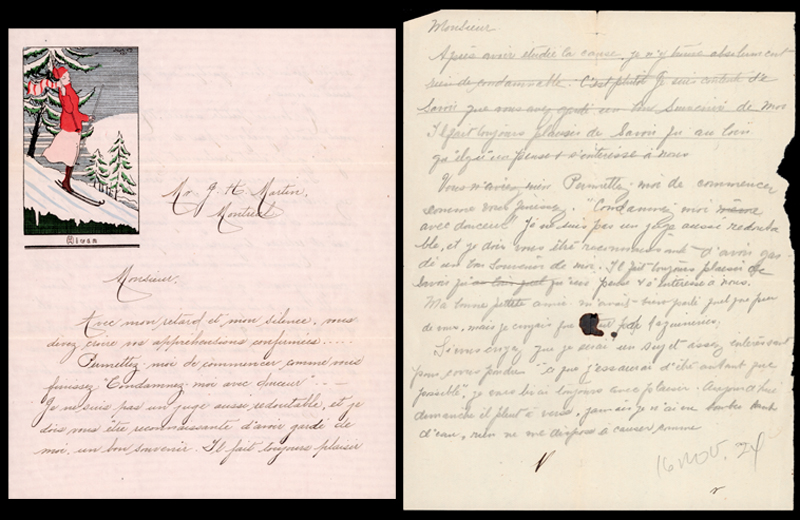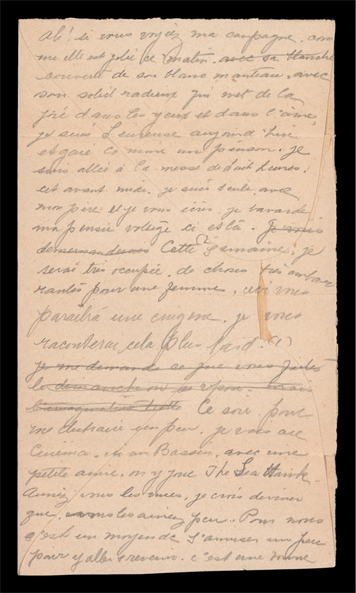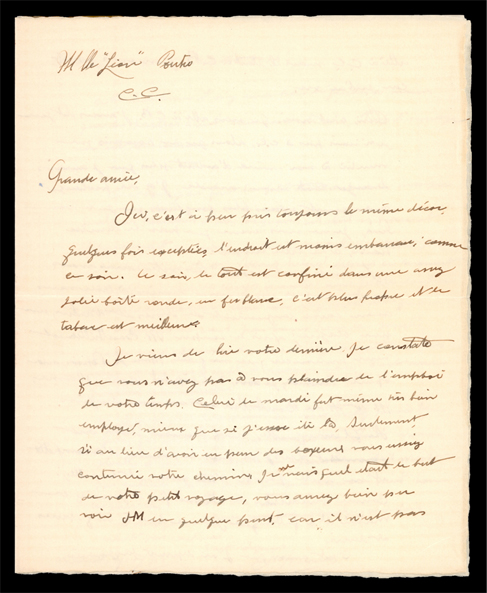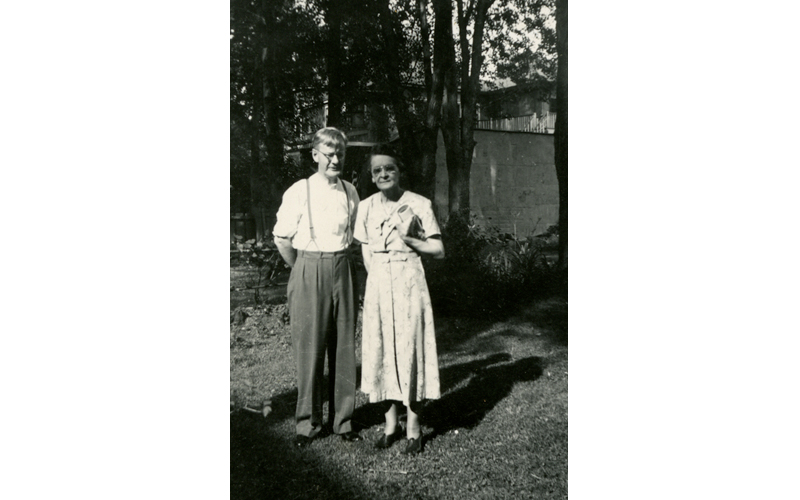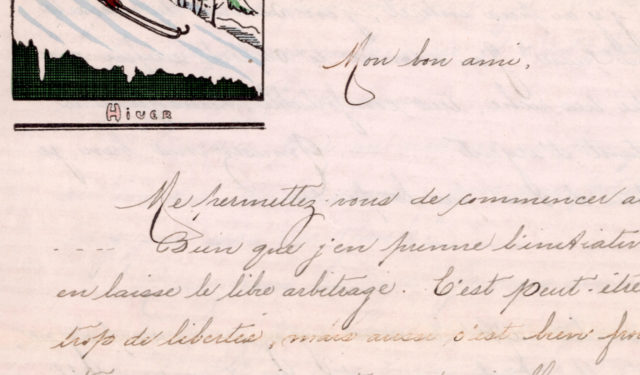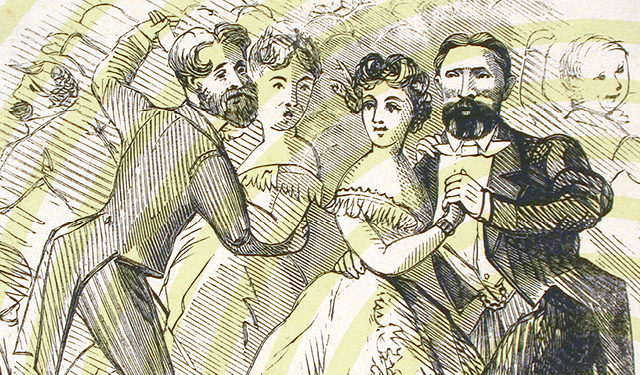A Nearly Century-Old Portrait of a Budding Relationship
Follow the growing feelings of love between Léontine Poutré and Hercule Martin chronicled in the archives of their epistolary relationship.
February 9, 2021
This series of 12 articles written for the Shared Emotions project uncovers feelings, sensations and values buried in archival documents and looks at how they are shaped by the cultural and historical context of the time. Just in time for Valentine’s Day, our intern Alexis Curodeau-Codère reveals in this special edition the hidden side of Léontine Poutré and Hercule Martin’s love letters.
______
On a November evening in 1924, Léontine sits at her desk. So far, she has written the word “Monsieur” in pencil, in the upper left-hand corner of the paper lying before her. After adding several sentences, she hesitates, crossing out these first lines, and then starts over, more carefully. She is responding to the first letter she has received from Hercule, a young man she met at her friends’ house in Chambly. Though he is only an acquaintance at the moment, some one hundred and fifty letters later, she would go on to marry him.
This is not mere speculation on my part; the Museum’s extensive collection of letters written by Hercule Martin and Léontine Poutré includes the latter’s rough drafts. While it is interesting to read someone’s correspondence, comparing the rough drafts with the letters sent reveals not only what the letter writer actually said, but also what she elected not to say. Marked by smudges, tears and crossed-out words, rough drafts bear witness to the laborious letter-writing process. One can just picture Léontine rereading the scrap of paper or cardboard used for her first draft one last time before taking her pen to copy her carefully worded thoughts onto her nicest stationery.
At the very beginning of their correspondence, Léontine’s hesitant, reworked first drafts are in stark contrast to her impeccable final versions. However, over the course of her epistolary relationship with Hercule, something changes along with the seasons. As she replaces the greeting “Monsieur” with “My dear friend,” Léontine’s words become more confident, her handwriting faster and more compact. Her rough drafts, jotted down on the back of invoices or old envelopes, become more assured. The pencil lines are firmer and more assertive, a little like the growing relationship between the two young people. It is as if the Léontine of the rough drafts increasingly comes through in the final letters.
Unfortunately, the Museum has no rough copies of Hercule’s letters. He may have thrown them away or, more likely, simply not written any. Though his penmanship is quite elegant, even in his very first letter, he expresses a certain nonchalance that only increases with time. As their relationship deepens, his writing become more of a scrawl, the lines rising and falling across the page, and his missives now open with the salutation “Close friend.”
Letter by letter, Hercule and Léontine slowly get to know one another. One lives in an apartment on Montreal’s Berri Street while the other resides with her parents in Chambly, but their letters chronicle their growing intimacy. On December 28, 1925, Léontine writes, Oh! I thought about you so much last night, and all day. Further down, she openly admits, in flowing script, devoid of frills, I would like to write you a very clever, very happy letter. To tell you everything on my mind. This was followed by an admission you can almost imagine her writing with a sigh: I am so happy about this dream for the future. The dream in question was their wedding.
Twenty-nine days later, Léontine and Hercule were married in Montreal, after writing to each other every week for over a year.
Léontine Poutré and Hercule Martin’s full correspondence is available here.
Happy reading!

